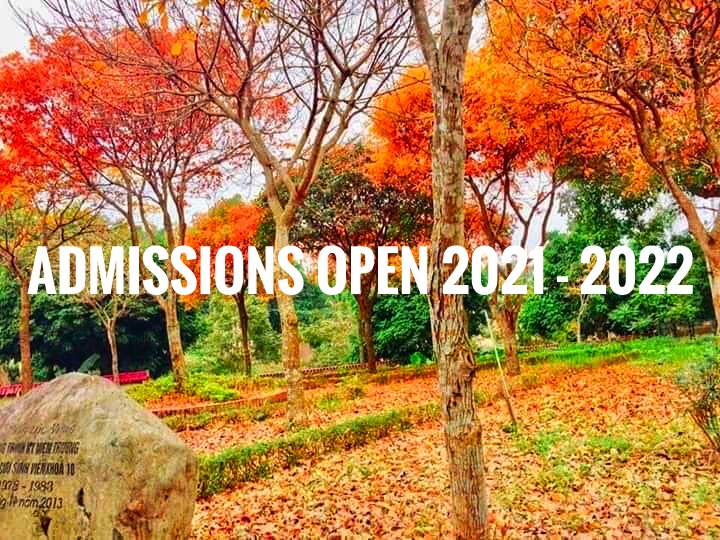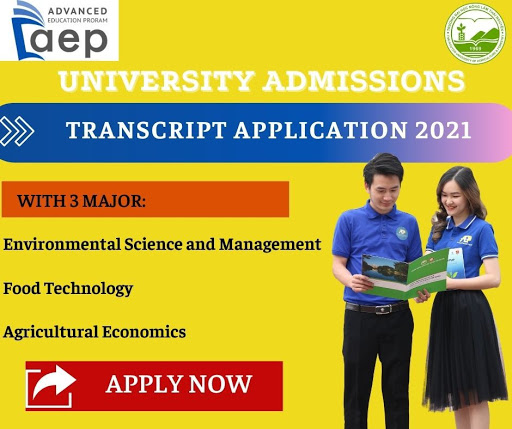General objectives:
To develop the University of Agriculture and Forestry in an application-oriented, autonomous manner; to meet international accreditation requirements and provide human resources with ethical qualities, professional knowledge, professional skills, innovation and creativity, and good health to serve industrialization and modernization of the country and international integration economic.
Development Orientations:
The University has promoted development orientations as follows:
Developing the University in the direction of application in order to create scientific and technological products published in prestigious international journals (ISI, SCOPUS), with highly practical applications and highly commercially possibilities.
Training human resources based on career orientation in order to meet the requirements of both domestic and international markets. The training programs are validated and accredited according to ASEAN standardized criteria.
Developing modern technical infrastructure for training and doing the research, building a friendly learning and research environment imbued with Vietnamese cultural identities in order to attract organizations and excellent experts, domestic and international students who come to collaborate, work and study.
Diversifying financial sources to develop infrastructures for training, scientific research, improving high standards of living for civil servants, academic staff and learners.
Participating and organizing social activities to enhance social responsibilities with the community.
Policies for Educational Quality Assurance:
The University’s quality assurance policies are built based on the development strategies of the University with the goal of training highly qualified human resources in order to meet the requirements of domestic and international markets. The University pays more attention to the educational quality assurance and considers it as the survival of higher education institutions.
The University has established an Educational Quality Assurance Council consisting of members who are the Board of Rectors, Heads of Departments and Deads of Training units. In order to implementate the quality assurrance, the University has established two systems of educational quality assurance which are at the instutional level and at the faculty level. (Figure 1.2)
At the instutional level, the Department of Quality Assurance Management which is established as a mangagement support unit, has a duty of buiding guidelines for quality assurance; developing a work plan for the internal quality assurance and periodically carrying out a self-assessment, registering for quality evaluation and accreditation according to the Ministry of Education and Training criteria and internationally standardised criteria. Furthermore, the department also organizes and coordinates with other units in the University to conduct the quality assurance; get the feedback of stakeholders on the lecturers’ teaching activities and training services, and then propose neccessary solutions in order to improve the quality of teaching, serving and training program adjustations which are suitable for the social needs respectively.
At the faculty level, the faculties take responsible for their quality assurance activities. Each faculty has testing and academic assistants who are undercontrolled and managed by Faculty Leaders. Additionally, each faculty has a duty of cooperating with the Department of Quality Assurance Management to carry out quality assurrance activities, assess and evaluate the course syllabus, test item bankings, take class observations, get the feedback of stakeholders to review the education training programs; make plans to carry out different activites for enhancing the quality of teaching and adjusting training programs to meet the demands of the social needs.
The University has issued quality assurance decisions, regulations and rules such as Decision No 1257/QD-ĐHNL dated on October 4, 2016 about the regulations on testing and quality assurance; Decision No 1087/QD-KT & QACLGD dated on August, 21, 2017 about the regulations on quality assurance activities inside University of Agriculture and Forestry; Decision No 1665/QD-ĐHNL-QLCL dated on December 4, 2019 about getting feedback from stakeholders, Decision No1403/QD-ĐHNL-QLCL dated on October 3, 2019 about the regulations on the quality assessment of training programs according to the learning outcomes at Thai Nguyen University of Agriculture and Forestry.
In 2017, within the period of 10 years, the University conducted the process of validation and accreditation and successfully achieved the educational quality according to the Ministry of Education and Training criteria, taking the second place in the national ranking system (out of a total of 119 universities who also obtained the educational quality evaluated by domestic accreditation organizations until February 2019).
.png)
Figure 1. TUAF Quality Assurance System


